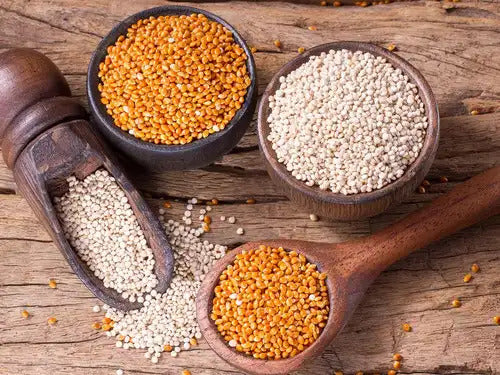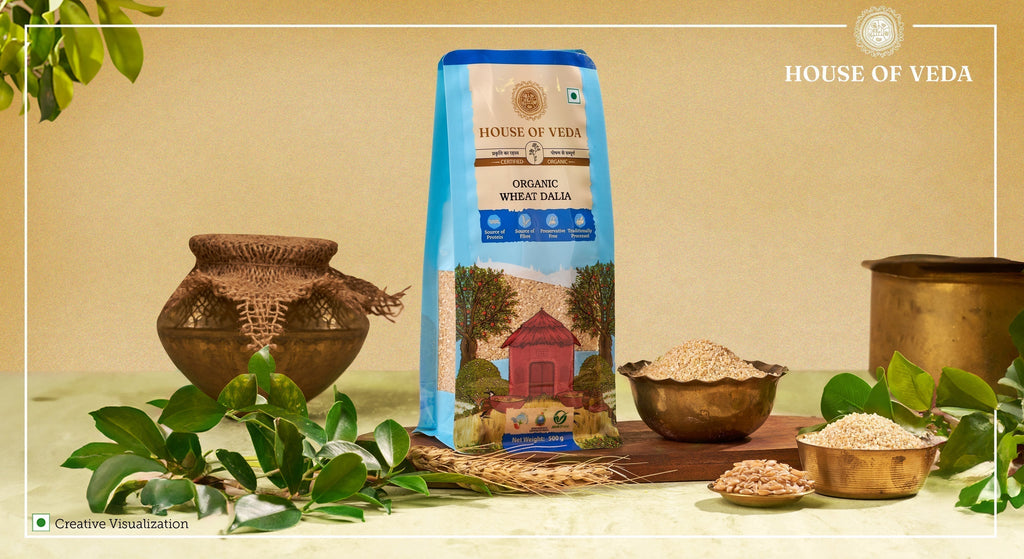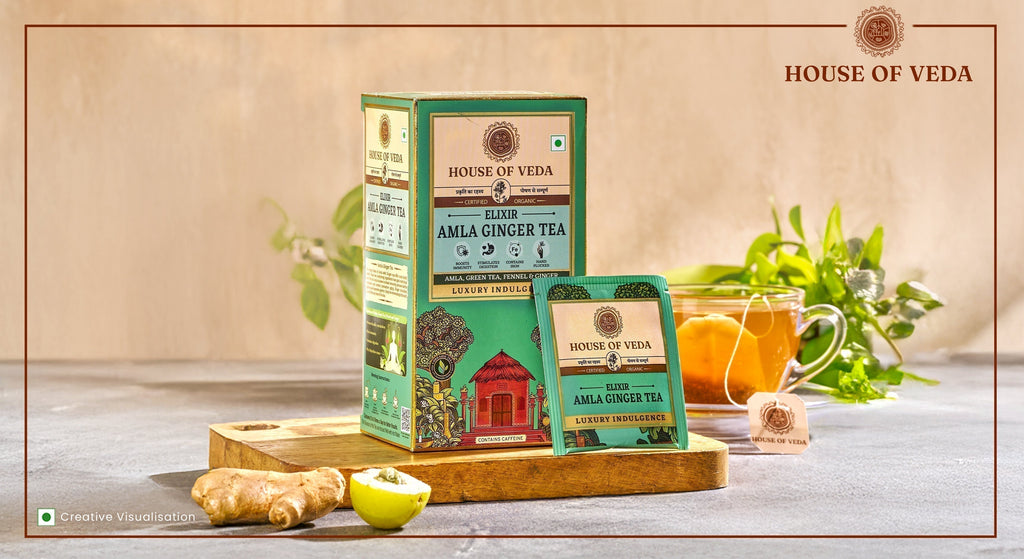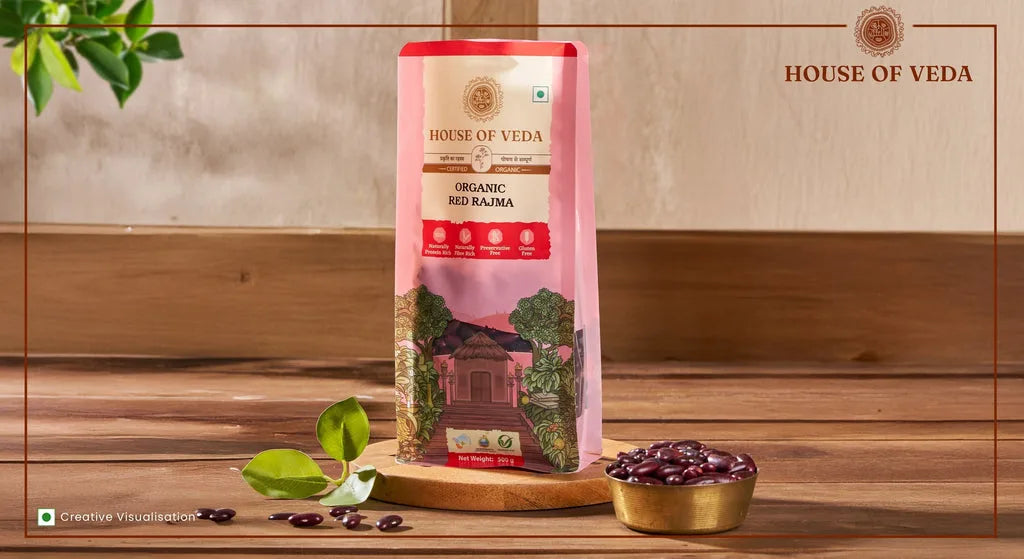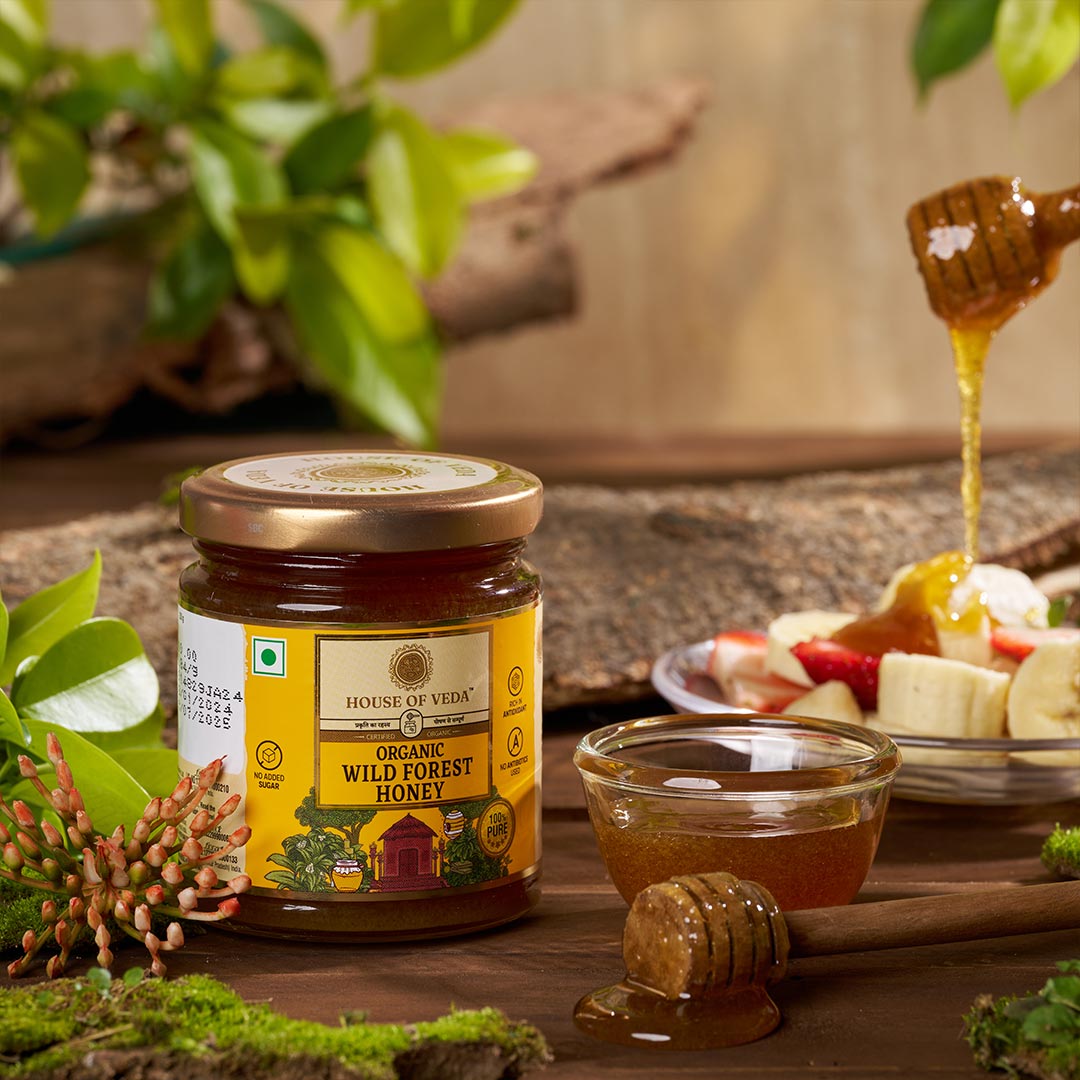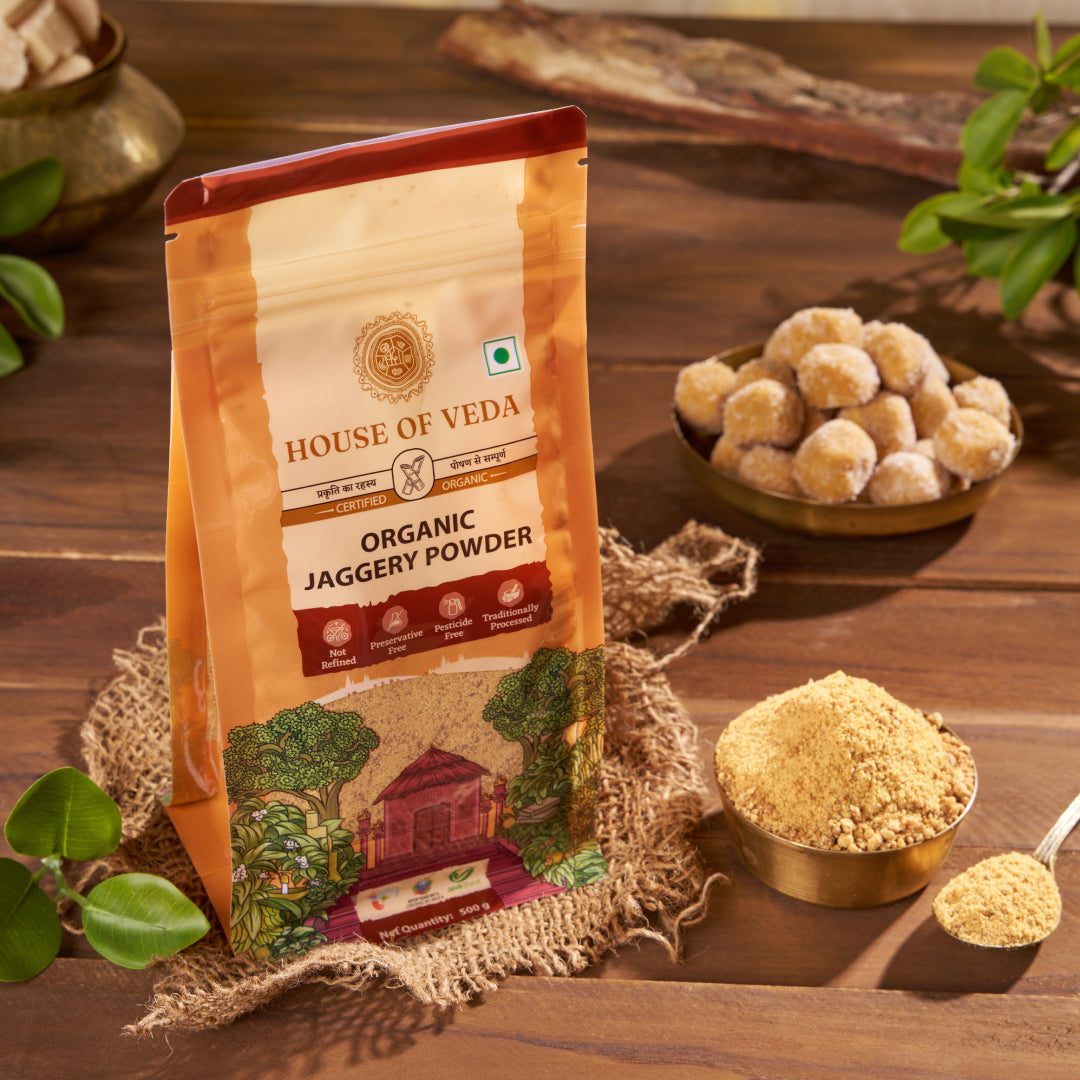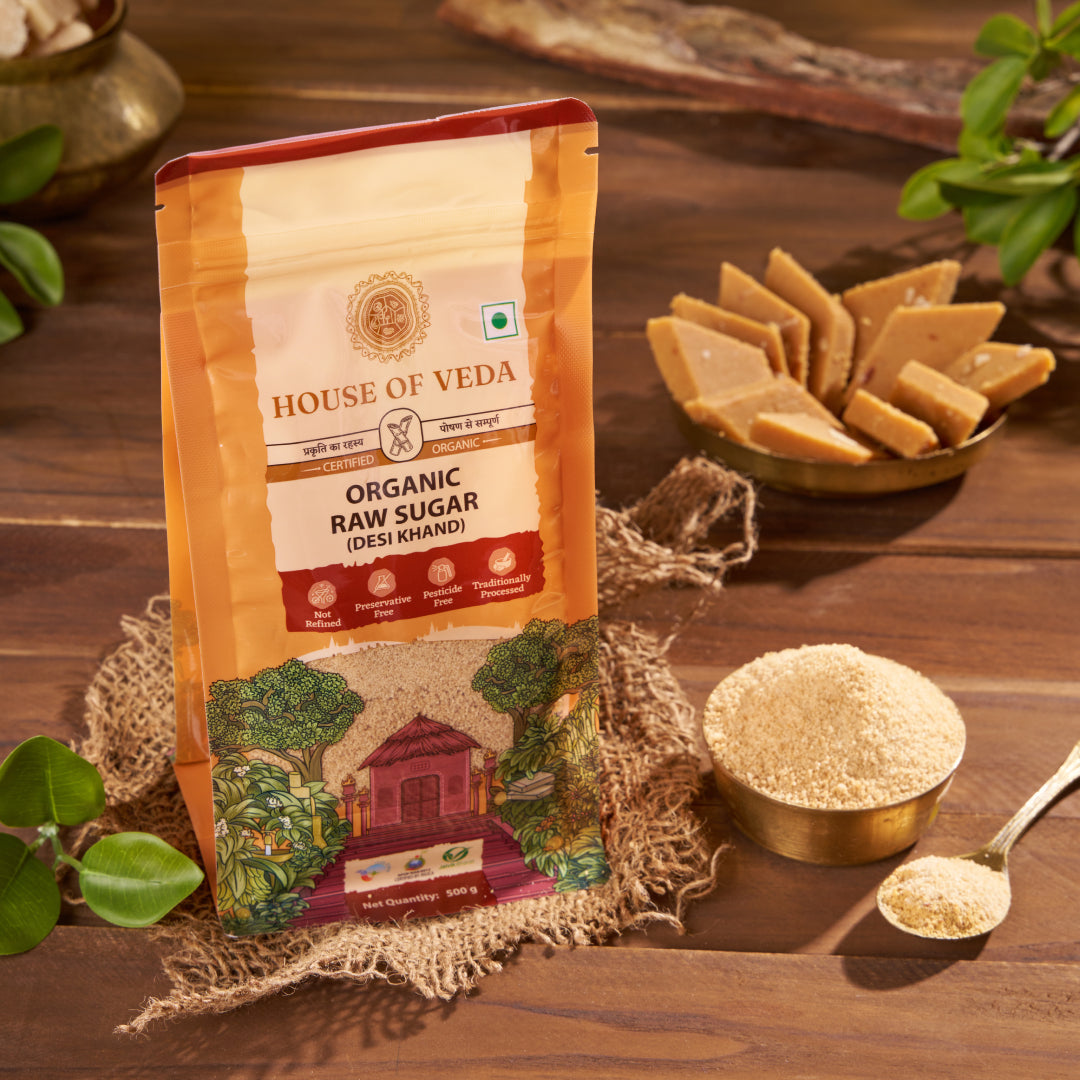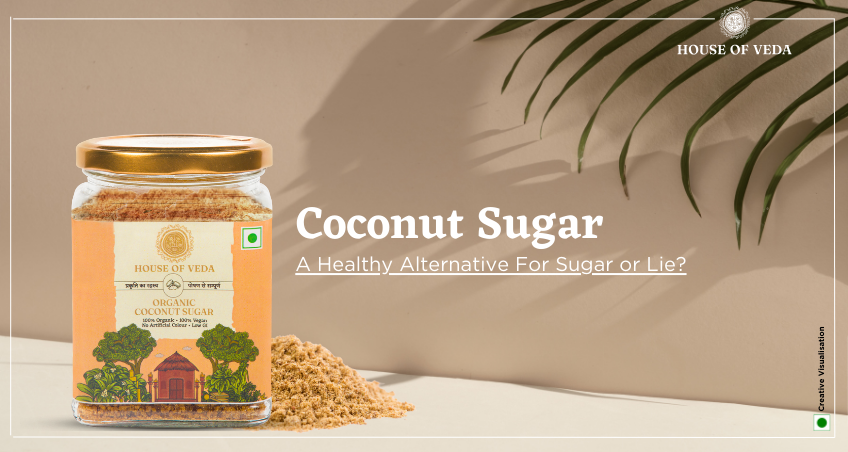
Coconut Sugar: A Healthy Alternative For Sugar or Lie?

Coconut sugar is a natural sugar substitute that can replace white sugar. It is coconut palm sugar in the shorthand as it is extracted from coconut palm trees. It shares similarities with brown sugar. Vegans prefer this commonly low-calorie sugar to refined sugar. But is it the healthier alternative to cane sugar or only a marketing lie? This article will reveal facts about traditional coconut sugar as an organic sweetener to regular sugar and its benefits for a healthy diet.
What is Coconut Sugar?
Coconut sugar is known as coconut palm sugar or flower nectar sugar. Unlike refined white sugar, which undergoes extensive processing, coconut sugar is minimally processed. Harvesters collect coconut blossom sap through seminal and boil it until it becomes syrup, which finally gets dehydrated to resemble brown sugar. Minimal processing preserves the coconut sap's organic form, making it more nutritious.
Nutritional Content Comparison with Regular Sugar
While coconut sugar use in your diet may appear healthier, it's essential to understand that it is nutritionally similar to regular sugar. In both cases, the tiny spoon contains roughly the same calories. But organic coconut sugar retains nutrients from palm trees. The critical difference lies in the glycemic index (GI). The GI measures how soon a particular food type raises sugar levels. Coconut sugar has a lower GI than regular sugar. This suggests that coconut sugar may cause a slightly slower rise in blood sugar than regular sugar. It could slightly relieve people with diabetes or patients with high blood sugar levels.
Potential Health Benefits of Coconut Sugar
-
Low Glycemic Index Value and Impact on Blood Sugar Levels
The merit of a low GI index for natural coconut sugar is that it controls how quickly blood sugar rises, allowing it to remain at consistent levels. Cane sugar has a GI value of 60 in a regular diet, but with raw coconut sugar, the value is reduced to 54. Individuals with diabetes need to pay attention to the amounts of sugar in their diet. Organic sweeteners such as coconut palm sugar gradually replacing the sugar will help to maintain the optimum sugar levels. For individuals with impaired metabolism, a low GI value can help keep blood sugar levels and prevent hypoglycemia, an instance of low blood sugar.
-
Contains Some Nutrients and Antioxidants
In its making, coconut sugar also contains small amounts of minerals like potassium, magnesium, iron, zinc, and some antioxidants. One should remember that despite the benefits of coconut sugar, the amount consumed should be negligible; moreover, making up these nutrients in this amount would not be recommended.
Considerations and Controversies
While coconut sugar benefits might appear attractive due to its lower GI and trace nutrients, some aspects require consideration:
High Fructose Content Concerns
The coconut palm sugar comes lightly below the fructose found in regular sugar, but both contain lots of fructose. Elevated fructose consumption may be associated with an increased prevalence of obesity and fatty liver ailments. Maintaining a balance is essential without coveting the sugar source.
Environmental Impact of Coconut Sugar Production
The increasing market for coconut sugar has begun to stir worries about its ecological effects. Sustainable growing methods and additional deforestation to meet the demands can pose an environmental threat. Instead of using regular sugar, organic food products, which have an approach to sustainable agricultural activity, are one of the more responsible options.
How to Use Coconut Sugar in Cooking and Baking
- Start with a smaller quantity: Coconut sugar is almost twice sweeter when replacing regular sugar, so use approximately 25% less sugar in recipes. Adjust to your taste at the end of the process.
- Use it in dishes where the flavour complements other ingredients: Coconut sugar is highly compatible with cake stuff like biscuits, muffins and pancakes, and savoury foods such as stir-fries or marinades, which caramel flavour balances out.
- Be mindful of its browning properties: Coconut sugar caramelizes faster than regular sugar, so keep an eye on your baking goods to avoid overbrowning.
Tips for Substituting Coconut Sugar in Recipes
Adjust Moisture Levels
Coconut sugar tends to be hygroscopic, which means it has a higher absorbability than regular sugar. The result can be that your bake's texture differs, making it denser or chewy. On the contrary, reduce the quantity of other liquids by a tablespoon or two to neutralize the saltiness. You can do this by experimenting and adjusting according to individual recipe ingredients and the refinement you strive for.
Consider Texture
Coconut sugar is slightly granular in texture compared to super fine granules of regular sugar. It will influence the foundation of your end product, most especially in cream buttering or topping. If your top priority is a consistent texture, process the coconut sugar in a food processor to make it finer.
Explore Different Forms
Different forms of coconut sugar may vary in some aspects, each being unique in quality. Coarse grain coconut sugar is ideal for making elements like mix bars and toppings, whereas finely ground coconut sugar is processed with dough and batters. Select the type that matches your recipe in terms of structure.
Not Just for Baking
The applications of coconut sugar in baking make its use so widespread. This is also discovered when coconut sugar is used for food preparation other than baking. Its delicate sweetness compliments flavorful dishes such as stir fries, sauces, marinades, salads, or dressings for salads. Have a small portion of it at a time and explore the uniqueness of its taste, dictating different cuisines.
Start Your Well-being Journey with the House of Veda
At House of Veda, we consider it our responsibility to help you be healthy and energetic while staying close to nature. We have a diverse range of organic food products. They are manually selected only so you can pick from various healthful choices and be your healthiest version.
Among the many options, one can also use organic jaggery powder, organic coconut sugar or even organic raw sugar as sweeteners. All our sweeteners have green stickers from BSCI, guaranteeing they are manufactured without adversely affecting the around-earth ecosystem.
Besides sugar supplements, we provide organic food with a rich assortment of products: non-filtered pressed oils, pulses and flours. Each product is created with the most thought, respecting the craftmanship and organic farming standards. Explore our collection and contact us to start your journey toward well-being with the House of Veda.
FAQs
Is coconut sugar better for you than sugar?
Coconut sugar is often considered a better option than regular sugar. It has a lower glycemic index and contains few nutrients and antioxidants, making it a more health-conscious choice.
Can you replace sugar with coconut sugar?
Yes, most recipes generally use coconut sugar as a one-to-one replacement for regular sugar. Its caramel flavour adds a unique touch to dishes, making it a versatile substitute.
Which is healthier, date sugar or coconut sugar?
Both date sugar and coconut sugar have their benefits. Coconut sugar has a lower glycemic index and some nutrients, while date sugar retains fibre and vitamins from the fruit. The choice depends on individual preferences and dietary needs.
What is the healthiest type of sugar?
There is no definitive "healthiest" sugar, but some alternatives like coconut sugar, date sugar, and honey offer additional nutrients compared to refined white sugar. Moderation and considering individual health goals are key to making a healthier choice.
Can I eat coconut sugar every day?
While coconut sugar can be part of a balanced diet, consuming it in moderation is essential. Excessive sugar intake may have health implications, even from alternatives like coconut sugar. Consider your overall sugar intake from various sources for a well-rounded approach to nutrition.
Read More:
Is Coconut Sugar better than other Sweeteners
What is Organic Jaggery Powder Good For Daily?


